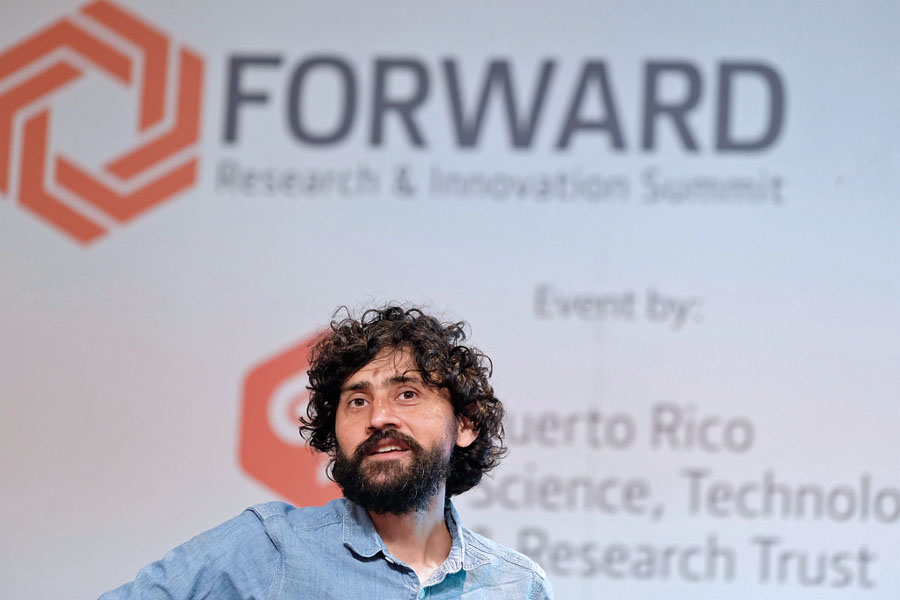Scientist: ‘Access to science, treatment, disease control must be democratized’

Entrepreneurs, scientists, researchers, students, and technology and innovation enthusiasts gathered at the Forward Research and Innovation Summit 2018 sponsored by the Puerto Rico Science, Technology and Research Trust.
A wide variety of topics including resilience through education, bioeconomy, advances in medicine, three-dimensional printing, innovation, research and development, entrepreneurship were presented by more than 30 speakers to the 400 plus attendees who met this weekend at the Sheraton Hotel in San Juan.
Among all the presentations it was the keynote speaker, Scientist and Stanford University Professor Manu Prakash, who generated the most enthusiasm among those present.
“We’re all scientists; we are all born with an innate curiosity,” said Prakash while explaining the importance of access to medicine for all. “We must democratize access to science, treatment and disease control.”
Prakash surprised the audience with an unusual melody created with the compilation of buzzing sounds of thousands of mosquitoes and musical notes.
With this, he announced the launch of an application that will be implemented in Puerto Rico, through which the sound of the mosquito is heard to identify the species to which it belongs.
The scientist highlighted the important role of microscopy for accessible scientific learning while explaining that 510,000 foldscopes (paper microscopes) have been distributed in 130 countries in the world. His goal for 2018 will be distributing more than a million of the paper microscopes.
“During the Summit, we were able to present a variety of topics that contribute to accelerating the understanding and potential of science, technology and research in Puerto Rico,” said Science Trust CEO Lucy Crespo.
“This second edition of the Forward Research & Innovation Summit served as a platform to empower the local scientific and technological community which advances their collaboration potential of collaboration,” said Crespo.
During the event, the Science Trust bestowed its BAJARI award — an institutional recognition by nomination given exceptional scientists on the Island — to Carmen Zorrilla, professor of obstetrics and gynecology at the School of Medicine of the University of Puerto Rico.
She is certified by the American Board of Obstetrics and Gynecology and the American Academy of HIV Medicine. Due to her efforts, Puerto Rico became the first jurisdiction in the world to eliminate HIV transmission from mother to child at birth.
In 1987, she established the first longitudinal clinic for women living with HIV in Puerto Rico. She participated in the pediatric AIDS clinical trial PACTG 076 as one of the first 10 pilot sites; and helped make AZT available to pregnant women living with HIV in Puerto Rico.
Her clinic, where more than 600 babies were born to HIV-positive women, has had an almost zero transmission rate for the past 16 years.









The greatest food growing system for P.R. is about to be imported with high government customs duty, of course, because it helps people survive! It can grow food vertically with minimal water and no cost for fertilizer supplied by small tanks of growing fish.
Its 400 acre farm can also provide room for 500 farmers on the West side of Rio Coamo adjacent to Santa Isabel. But, thousands of others can grow on any nearly flat small area with simple PVC pipe designed 12′ tall towers.
Corporate investors will soon be watching us grow!